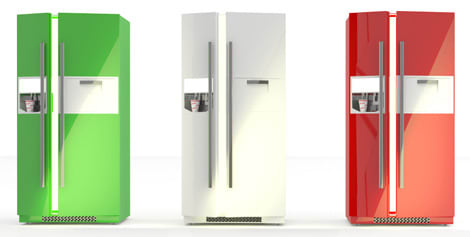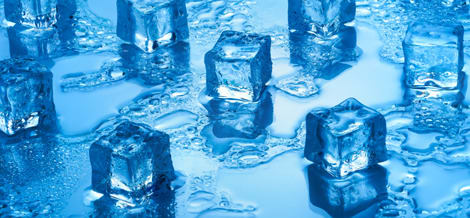11 Tips to Keep Your Refrigerator Costs Low
Even small changes in the way you use your fridge will add up over time.
 Credit:
Credit:
Products are chosen independently by our editors. Purchases made through our links may earn us a commission.
Your refrigerator is a power hog, running 24 hours a day, 365 days of the year. Even small changes in the way your use your fridge will add up over time. Whether you recently bought a new energy-efficient fridge, or inherited your mom's old one from 20 years ago, here are some practical steps to increase energy efficiency and prolong the life of your refrigerator.

Clean the Coils
Those metal coils on the back of your fridge help get rid of heat from the compressor, that part that actually chills your fridge. Keeping the coils clear of dust and debris will mean the compressor doesn't have to work as hard to cool off your food, according to the Department of Energy.
Cover Your Food
You already know that covering your food will retain moisture and preserve freshness, but did you know that it also saves power? A refrigerator's compressor has to work harder to cool moist air, so in covering your food, you'll limit the amount of moisture in the fridge and cut back on how hard the compressor has to work to cool it.
Keep the Door Closed
This one is fairly obvious, but while you're holding the door open trying to figure out what you want, the heat from the room enters. Your food warms up ever so slightly, and the fridge has to kick on the compressor again. The food and energy costs add up. Obviously you need to open the door, just make it quick.
Smaller Fridges for Smaller Families
If you have more fridge space than you need, that's more cubic feet of air the compressor needs to keep cool. A young couple living alone doesn't need a gigantic fridge capable of feeding the neighborhood kids. We measure power consumption in relation to total interior space, for a better idea of overall efficiency.
Make Sure it's the Right Temperature
Keeping your fridge too warm could make food unsafe, but keeping it too cold can ruin food (particularly produce), racking up extra energy costs and wasting groceries, too. The Department of Energy recommends keeping the main food compartment between 37 and 40 degrees Fahrenheit, and the freezer at 5 degrees Fahrenheit. To measure the temps in the fridge, put a thermometer in a glass of water in the center of the fridge, and let it sit for 24 hours. For the freezer, place it between frozen items and check after 24 hours.

Check the Seals
If the seals around the door are warped or torn, you'll be consistently letting room-temperature air into your fridge, warming the inside. If you need to replace the seals, contact the manufacturer, or if you're a handyman, rig up some seals of your own.
Defrost the Freezer Periodically
If your freezer needs to be defrosted manually, make sure to do so on a regular basis. Don't let more than a quarter inch of frost build up. Otherwise, it restricts air flow in the freezer, and also retains moisture, which as we mentioned is more difficult to cool.
Keep it Full
Cold things keep each other cold. Keeping your refrigerator well stocked can help it regulate the temperature inside. If you don't have a lot of food, place bags of ice or pitchers of cold water inside.
Keep Hot Items Out
If you put a hot casserole in the fridge straight out of the oven, all of the heat from the dish will radiate into the fridge, warming all of the air inside. Your compressor will have to work harder to cool the air, wasting electricity. Let hot dishes cool on the counter top before putting them in the fridge.
Turn Off the Ice Maker
If you leave the ice maker turned on when you don't use it, it can be a power hog. Consider switching it off when the box is filled with ice, or simply not using it as often.
Keep it Away from Heat
This is another obvious one, but try not to place your fridge right next to your oven or range, as heat from that unit will warm the fridge. Also keep it out of direct sunlight.
If you follow these guidelines you should see a decrease in your power bill over time.
More on refrigerators
- The Best Refrigerators We've Tested
- How cold should your refrigerator be?
- Refrigerator power outage tip: Put a quarter on a cup
- The surprising perks of bottom-freezer refrigerators
- What fridge style fits you best? Read this before you buy
- The Best French-Door Refrigerators We've Tested
- 4 best garage refrigerators to store extra drinks and food
- How we test refrigerators in the Reviewed test labs
- The Best Side-by-side Refrigerators We've Tested
- The Best Top-Freezer Refrigerators We've Tested
- The Best Counter-Depth Refrigerators We've Tested
Any efficiency tips of your own? Let us know in the comments!
